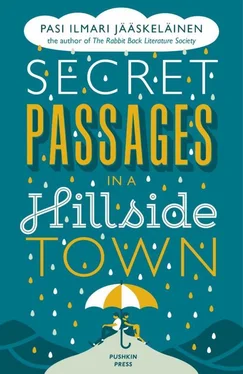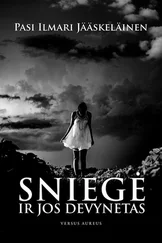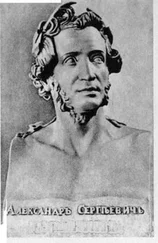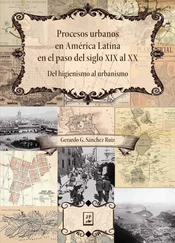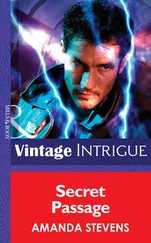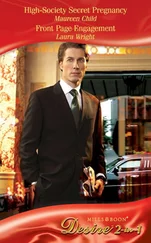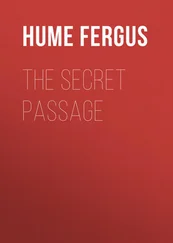Of course, a woman can also steal a kiss from a man. In that case the situation becomes more complicated. While a man who steals a kiss and is rebuffed is a somewhat comical but at the same time romantic (and by no means ridiculous) hero, a woman thief whose kiss is refused becomes a tragically fearsome, desperate and sometimes even contemptible creature—familiar from film noir—and is condemned to ruination for her unrequited passion. On the other hand a woman whose stolen kiss is not refused is likely to succeed in wrapping her male victim around her little finger, thus becoming a femme fatale, and can then use her power over him in whatever way she wishes. (More on the rules of the femme fatale in the next chapter.)
The riskiest stolen kisses, of course, occur when both parties are of the same sex. With the exception of certain specific settings (such as a gay bar), the probability of the kiss being rejected is increased exponentially. In the best cases, the rejected homosexual kiss leads to comic embarrassment, but in many situations it is likely to end in tragedy. As a cinematic character, the male homo-sexual thirsting for love is one of the most tragic, at least when it comes to traditional cinema (a tradition for which the character of Jack Twist in the film Brokeback Mountain represents a breaking point of sorts). Films with more modern values—such as Wong Kar-wai’s Happy Together , which normalizes homosexuality—are more merciful to him.
As with all cinematic acts, stealing kisses demands a sense of space and rhythm and an ability to influence the mood so that every aspect of the situation points to the kiss like a road sign. I hardly need add that the M-particles in magical places invariably facilitate the success of the endeavour by decreasing the slow continuum attachment of both parties.
(See next page for stills of cinema’s most famous stolen kisses.)
Greta Kara opens the iron gate in front of the chapel. She hasn’t yet noticed Olli and doesn’t know he’s watching her, but she moves with careful grace, like an actress who can hear the hum of cameras and feel the heat of the spotlight wherever she goes. Greta is radiant, but the day is cold and grey. The air holds a hint of coming rain.
Olli has a small red umbrella. It belongs to Aino. It was the only one he could find. He’s smoking a cigarette. The smoke strengthens his deep cinematic self and dispels his insecurity.
Her pale figure moves from the cemetery to the other side of the wall, the world of the living. The banging of the gate interrupts the pastor’s flow of words, carried across the graveyard. From dust you came, to dust you shall return .
A group dressed in black is crowded around an open grave like a flock of crows. As she walks past them, Greta stands out like a protest against the transience of it all, in a conical white hat, a white dress that leaves her arms bare and a handbag of the same colour. Felliniesque. “A combination of tastelessness, sensuality and exuberant colour,” as the Guide to the Cinematic Life put it.
Olli steps out from the shade of a maple tree, drops his cigarette and rubs it out with his foot.
Greta’s face brightens. “Well hello, Olli. I suppose I should be surprised. But I’m not. I had a hunch I would see you somewhere today. This lovely hillside town is apparently so small that we can’t go a day without running into each other, although I seem to have accidentally averted that fate yesterday… You aren’t stalking me, are you, Mr Suominen? Following me around?… Ha. As if a busy man like you didn’t have more important things to do. Conspiracy theories aside, though, I didn’t mention anything about this on Facebook. It’s weird and stimulating this way, don’t you think? In a good way. I went out for a walk, my feet brought me here, and on a whim I thought for once that I would put some flowers on Anna’s grave, since I am in Jyväskylä.”
“Anna’s grave?”
Greta’s brow furrowed and her nose scrunched up, making her look like a cross little animal. “Olli, if you don’t remember Aunt Anna, I’m going to be upset. But I refuse to believe that you are one of those horrible people who treat the past like some trivial movie they remember watching long ago, or at least partway through, but they can’t recall the names of the actors or the plot, and they don’t care to… The love interest was the blonde one. Or was it the other girl?… No, it was definitely the one with the golden hair. And they met at a dance or on the beach or maybe on a carousel, I can’t remember, but anyway, then something bad happened to them… or did they get to be together in the end? ”
Greta’s stream of words starts light-heartedly but turns bitter at the end. Her eyes grow wet. Black streaks run down her cheeks.
She raises a hand in front of her face. “Oh no. Olli, be the gentleman I know you are and don’t look at me,” she sighs.
Olli hands her the handkerchief the Blomrooses sent him. She takes it, thanks him and turns half away from him.
“I can’t bear it that you, of all the people in the world, should see me like this. I’m dreadful. Pitiful. Ugly. Make-up down my cheeks… You’ll think I look like a dressed-up raccoon—No, don’t deny it, you’re absolutely right. I’m a catastrophe. I ought to pull my Donna Vinci right down over my eyes and run home, on the side streets so no one will see me. I would call a taxi but I left my phone at home. Do you have a phone with you, Olli? Please call a cab right now to take the aesthetic catastrophe known as Greta Kara where no one can look at her…”
She returns his handkerchief, stained with mascara, takes out a mother-of-pearl compact, lets out a little cry of alarm and begins to repair her make-up. Her hands are shaking. “I can’t get in a taxi looking like this,” she whispers, shaking her head.
Olli senses that she’s teetering on the edge of some kind of breaking point. “Of course I remember Aunt Anna,” he says. “I just didn’t know she was buried here.”
Greta isn’t listening. She’s concentrated on tidying her appearance.
Olli tries not to look at her too directly so as not to distress her any more. It’s obvious that his gaze is painful to her. After what happened thirty years ago—the way that their last meeting ended—it’s understandable that she would want to be well groomed and cinematically beautiful when she’s with him.
That’s fine with Olli. He wants to see her as beautiful and as perfect as she can be, too, out of respect and fondness, and at this moment—identified as he is with the character that his deep cinematic self has created—out of a kind of love for her, because it’s so terribly important to her.
“I didn’t even know that Aunt Anna was dead. Though I didn’t really think she was alive, either. I suppose I imagined she was still baking cookies in her kitchen in old Tourula, but those cookies were eaten up and the crumbs brushed away years ago. That place doesn’t even exist any more, but that doesn’t stop me from dreaming about it every night.”
Olli lights another cigarette to cover the embarrassment he feels at what he’s just tacitly revealed.
Greta looks past her mirror to somewhere far away, years away. “She died five years ago. Her body gave out. Drink did her in.”
“How sad. I wouldn’t have guessed…”
“Yeah.”
Greta manoeuvres her lip-liner with frenzied motions. The funeral party in the distance has come to the part where each person takes a turn dropping sand onto the coffin. Greta gives her lips a final check, packs her make-up into her hand-bag and starts across the car park towards town. She walks ahead of him, her high heels clicking over the asphalt, and Olli follows in unhurried steps.
Читать дальше
